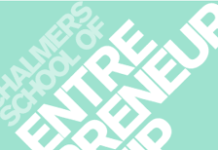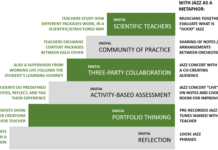Zooming in on my licentiate thesis, I have now decided on the main study object of my research (for the time being at least): mental tools in the domain of entrepreneurship, such as Venture Creation, Value Creation and Effectuation. I will describe how these mental tools can facilitate the development of entrepreneurial competencies (knowledge, skills, attitudes and values). For example, the business entity has by some been characterized as the most important innovation of humankind, and when we give students the task of creating a business of their own, the business entity concept with its multifaceted and inherently social characteristics will act as a mind tool triggering motivation, learning and transformation of people to become more entrepreneurial. At least if we don’t bury them in planning tasks, but actually let them create value in effectual ways (for more info on “effectuation”, see the work by Saras Sarasvathy).
The “mind tools” lens goes by many names, such as psychological tools, cognitive tools and cultural tools. Its origin is from groundbreaking work by Leo Vygotsky some 100 years ago, work that has been further developed by Russian colleagues such as Gal’perin, Kozulin, Stetsenko and Arievitch, and by Canadian professor Kieran Egan and his Imaginative Education Research Group (ierg.net). American professor in education David Jonassen has also focused on cognitive tools, but in a slightly different approach looking at computer mediated learning.
The difference from a learning perspective using “mind tools” is that it not only matters what knowledge, skills and attitudes are taught. It is equally important to consider what “mind tools” students are taught that at a later stage can be the tools they think with instead of about, when learning through the slightly unconscious use of these mind tools. This is opening up for learning on a quite different level. The traditional “mind tools” described by Vygotsky and others are reading and writing, i.e. language. Imagine an educational system without these tools that we perhaps seldom think about explicitly, except for in early years of schooling. I will go one step further here, considering Venture Creation, Value Creation and Effectuation (and potentially others) as such “mind tools” that the students can be triggered to think with when learning.
One example is if we consider a situation when students are asked to create value for people outside the educational context. This then becomes a way of thinking with the mind tool of “value creation”, asking the question “for whom is this valuable”, and can potentially trigger learning on a very different level than the usual classroom or lecture or project work based learning. It can eventually become a powerful way to shape entrepreneurial minds. If we want to do this kind of teaching, we then can consider methods and frameworks for value creation used outside the educational domain, and which of these methods and frameworks we can bring into the classroom.
In a couple of months my licentiate thesis will be ready, hopefully clarifying some aspects of the above text.
In the meantime, here is a conference article outlining this that hopefully some day will become published.








The conference paper from Martin,
‘How can Entrepreneurship Bridge Between Traditional and Progressive Education?’
is thought-provoking and an excellent and fundamental contribution to the debate on the efficacy of entrepreneurship education. It deserves to be published and if not yet submitted to a journal I can recommend at least three who would be keen to consider it!